- Density (23°C): 0.952 g/cm³ (ISO 1183)
- Melt Flow Rate (190°C/2.16 kg): 0.04 g/10 min (ASTM D1238)
- Stress at Yield Point: 250 kg/cm² (ASTM D638)
- Stress at Break: 390 kg/cm² (ASTM D638)
- Elongation at Break: Above 500% (ASTM D638)
- Izod Impact: 30 kg·cm/cm (ASTM D256)
- Stress Cracking Resistance: Above 600 hours (ASTM D1693)
- Melting Point: 131°C (ASTM D2117)
Polyethylene F7000 Applications
- High-strength films
- Grocery bags
- Trash bags
- Liners for industrial and agricultural use
Packaging:
- Flexible packaging for food and beverages
- Shrink wraps and stretch films
- Carrier bags
- Greenhouse films
- Mulch films
- Silage wraps
- Protective covers
- Construction films
- Pallet wrapping
- Shopping bags
- Household storage bags
- Disposable liners
Polyethylene F7000 Formulation
- Antioxidants: To prevent thermal and oxidative degradation during processing and use.
- Common examples: Hindered phenols, phosphites.
- Slip Agents: To reduce the coefficient of friction, improving the handling of films.
- Example: Erucamide or oleamide.
- Anti-blocking Agents: To prevent film layers from sticking together.
- Example: Silica or diatomaceous earth.
- UV Stabilizers: To protect the polymer from degradation under UV light exposure.
- Example: Hindered amine light stabilizers (HALS).
- Processing Aids: To improve extrusion performance and prevent die build-up.
- Example: Fluoropolymer-based additives.
- For specific properties like opacity or color.
- Density: Typically around 0.940-0.960 g/cm³.
- Melt Flow Index (MFI): Around 0.05-0.5 g/10 min (depending on the grade).
- Applications: Thin films, shrink films, and packaging films due to its strength, clarity, and processability.
Polyethylene F7000 Packing
PE F7000 of PETRO-ACC packing would be:
25 kg polypropylene bags with 1250 kg shrink and wrapped pallets.
Capacities for a different way of shipments would be as below:
20ft & 40ft containers for sea shipment:
20ft FCL: 13 MT/25 kg bags with pallets
40ft FCL: 25 MT/25 kg bags with pallets
The capacity of a Full truck: 25 MT
POLYETHYLENE F7000 STORAGE
Proper storage of Polyethylene F7000 is essential to maintain its quality and performance. Below are the recommended storage guidelines:
1. General Storage Environment
Temperature: Store in a cool, dry, and well-ventilated area. Avoid excessive heat or direct sunlight to prevent material degradation.
Humidity: Ensure low humidity to minimize the risk of condensation, which could lead to lumping or contamination.
Protection: Keep the material in its original, sealed packaging to protect it from dust, dirt, and moisture.
2. Safety Precautions
Fire Hazard: Polyethylene is flammable. Store away from ignition sources, open flames, or sparks.
Chemical Compatibility: Avoid storing near strong oxidizing agents or other reactive chemicals.
3. Handling Recommendations
Avoid Contamination: Do not expose the material to foreign particles or impurities. Use clean tools and equipment when handling.
Storage Duration: Use within the manufacturer’s recommended shelf life to ensure consistent quality and performance.
4. Stacking and Load Management
Stacking Guidelines: Follow the supplier’s recommendations for pallet stacking to prevent compression or deformation of the material.
Weight Distribution: Ensure even weight distribution when stacking to avoid damage to the packaging.
5. Environmental Considerations
Recyclability: Store scrap or unused materials responsibly for recycling to minimize environmental impact.
POLYETHYLENE F7000 SPECIFICATION
| PROPERTIES | Result | Unit |
| Density | 0.95(+0.02) | g/cm3 |
| Melt Flow Index (190 °C/2.16 kg) | 0.06 (+0,03) | g/10min |
| Moisture | MAX 0.2 | % |
| Tensile Strength @ Yield | 20 | MPa |
| Tensile Strength @ Break | 34 | MPa |
| Elongation @ Break | 500 | % |
| Izod Impact Strength, Notched | 2.8 | KJ/m2 |

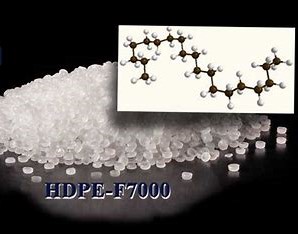
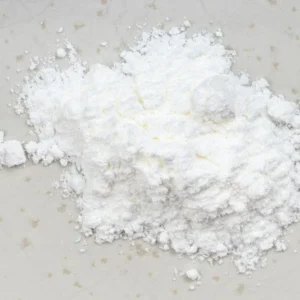
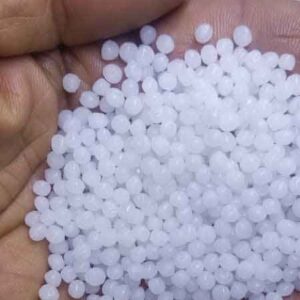
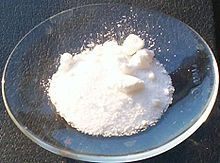
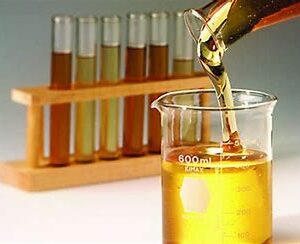
Reviews